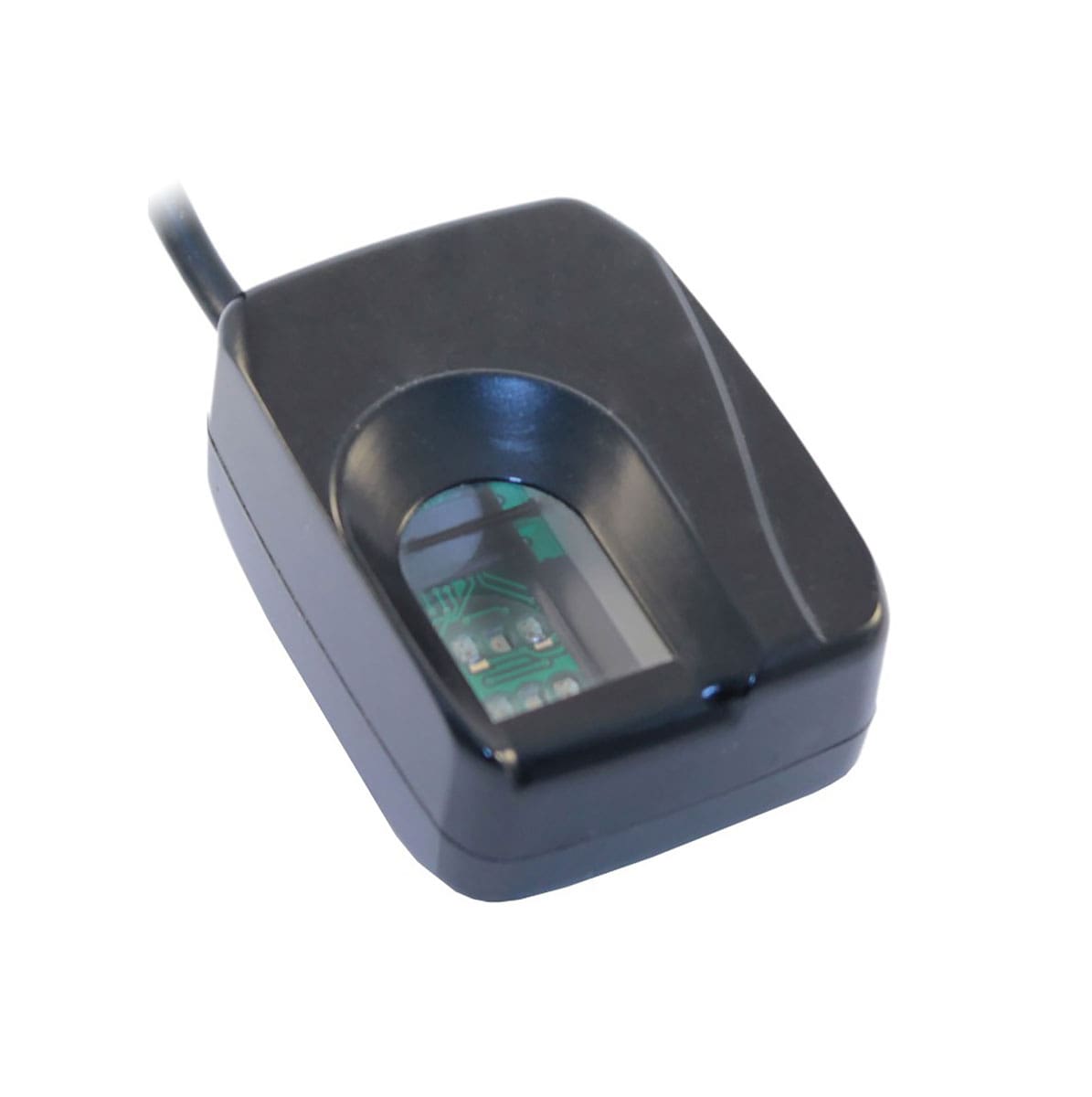The cost of fingerprint scanners varies, ranging from $50 to $500. The price depends on the brand and features.
Fingerprint scanners are advanced security devices that are becoming increasingly popular in various industries. From small businesses to large corporations, many are integrating fingerprint scanners into their security systems to enhance access control and monitoring. The cost of a fingerprint scanner can fluctuate based on the brand, technology, and additional features such as biometric capabilities and connectivity.
Factors that influence the price include the level of security provided, compatibility with different systems, and the overall quality and reliability of the device. When considering the cost of a fingerprint scanner, it’s essential to weigh the benefits of improved security and efficiency against the initial investment.
Evolution Of Fingerprint Scanner Technology
Fingerprint scanners have come a long way since their early development, evolving from high-security government applications to becoming a standard feature in consumer electronic devices. This evolution has been accompanied by changes in cost implications, which have influenced their integration into various devices.
Early Development And Cost Implications
The development of fingerprint scanner technology dates back to the early 20th century with the first documented use for identification purposes. Initially, the cost of implementing this technology was prohibitively high and was largely limited to government and military use. The extensive research and development required for the technology contributed to its high cost, which made it inaccessible for mass-market consumer applications.
Integration Into Consumer Devices And Its Impact On Cost
As fingerprint scanning technology continued to advance, there was a significant shift in its integration into consumer electronic devices. The integration of fingerprint scanners into smartphones, tablets, and laptops marked a pivotal moment, where the technology began to be more affordable due to economies of scale. This widespread adoption led to a reduction in production costs and subsequently lowered the overall cost of integrating fingerprint scanners into consumer devices.

Credit: store.fulcrumbiometrics.com
Factors Influencing Fingerprint Scanner Costs
When considering the cost of fingerprint scanners, several factors come into play that can impact the final pricing. Understanding these factors is crucial for businesses and individuals looking to invest in this technology. Here are the key elements that influence fingerprint scanner costs:
Technical Specifications Impacting Cost
The technical specifications of a fingerprint scanner play a significant role in determining its cost. Features such as sensor resolution, scanning speed, encryption capabilities, and compatibility with different operating systems and devices can greatly influence the pricing of a fingerprint scanner.
Market Demand And Supply Dynamics
The demand and supply dynamics within the fingerprint scanner market can also impact the cost of these devices. High demand for advanced biometric security solutions and a limited supply of cutting-edge fingerprint scanning technology can drive prices higher. On the other hand, a saturated market with numerous suppliers may lead to competitive pricing.
Influence Of Brand And Product Differentiation
Brand reputation and product differentiation have a direct influence on the cost of fingerprint scanners. Established brands with a strong market presence and a reputation for quality and reliability often command premium prices for their products. Additionally, fingerprint scanners with unique features and design elements may be priced higher due to their differentiation from standard offerings.
Cost Analysis Of Fingerprint Scanners

The cost analysis of fingerprint scanners involves evaluating the breakdown of production costs, pricing strategies by manufacturers and distributors, and the economic impact on end consumers. Understanding these factors provides insight into the overall cost structure of fingerprint scanners and how it affects both the industry and consumers.
Breakdown Of Production Costs
When analyzing the cost of fingerprint scanners, it is essential to consider the breakdown of production costs. This typically includes expenses associated with materials, labor, research and development, manufacturing processes, quality assurance, and overhead expenses. The table below outlines the production cost breakdown for fingerprint scanners:
| Cost Category | Percentage of Total Cost |
|---|---|
| Materials | 35% |
| Labor | 20% |
| Research and Development | 15% |
| Manufacturing Processes | 15% |
| Quality Assurance | 10% |
| Overhead Expenses | 5% |
Pricing Strategies By Manufacturers And Distributors
Manufacturers and distributors employ various pricing strategies to determine the cost of fingerprint scanners. These strategies may include cost-based pricing, value-based pricing, competitive pricing, and dynamic pricing. Additionally, factors such as brand positioning, market demand, and distribution channels play a crucial role in shaping the pricing strategies. It is important to note that manufacturers and distributors aim to strike a balance between profitability and market competitiveness when setting the prices of fingerprint scanners.
Economic Impact On End Consumers
The cost of fingerprint scanners directly impacts end consumers, as it influences their purchasing decisions and affordability. Factors such as price elasticity of demand, consumer preferences, and relative price comparisons with alternative security solutions contribute to the economic impact on end consumers. Moreover, the cost of fingerprint scanners can affect market penetration and adoption rates, ultimately shaping the competitive landscape within the industry.
Future Trends In Fingerprint Scanner Pricing
Fingerprint scanners have become an integral part of modern security systems, offering a secure and convenient method of biometric authentication. As the technology continues to advance, the future trends in fingerprint scanner pricing are a topic of significant interest. From the integration of new technologies to market predictions and implications for consumer accessibility, the cost of fingerprint scanners is set to undergo notable changes.
Integration With New Technologies And Its Cost Effects
The integration of fingerprint scanners with new technologies, such as advanced encryption algorithms and artificial intelligence, is expected to impact their cost significantly. As these scanners become more sophisticated in terms of security features and performance, the production and development costs are likely to rise. However, advancements in technology may also lead to improved manufacturing processes, potentially offsetting some of the cost increases.
Market Predictions And Potential Cost Fluctuations
Market predictions are indicative of potential fluctuations in the cost of fingerprint scanners. With the increasing demand for biometric security solutions in various industries, including finance, healthcare, and aerospace, the competition among manufacturers is expected to intensify. This competition may drive prices down as companies strive to capture larger market shares. On the other hand, the incorporation of advanced features and capabilities may push prices up to accommodate the value offered by high-end fingerprint scanners.
Implications For Consumer Accessibility And Affordability
As the pricing trends for fingerprint scanners unfold, the implications for consumer accessibility and affordability become crucial considerations. While the integration of new technologies may drive up the initial costs of acquiring fingerprint scanners, increased market competition and advancements in manufacturing processes could eventually lead to improved accessibility and affordability for consumers. This trend may result in a wider adoption of fingerprint scanning technology across various applications, from mobile devices to access control systems.
Regulatory And Security Considerations
In the realm of fingerprint scanners, regulatory and security considerations play a crucial role in shaping the landscape of device development and pricing. Compliance with industry standards and security protocols incurs costs that can significantly impact the overall price of fingerprint scanners. Moreover, the integration of advanced security features to safeguard sensitive biometric data also influences the pricing decisions. Understanding the interplay of regulatory and security considerations is essential for both manufacturers and consumers alike.
Compliance Costs And Impact On Device Pricing
The stringent regulations and standards imposed by regulatory bodies necessitate intensive testing, validation, and certification processes. These compliance efforts entail substantial financial investments, directly impacting the development and manufacturing costs of fingerprint scanners. Additionally, manufacturers may need to allocate resources for ongoing compliance maintenance, further adding to the overall expense. Consequently, these compliance costs are factored into the pricing strategy of fingerprint scanner devices, amplifying the financial burden on both manufacturers and consumers.
Balancing Cost With Security Features
Bringing to market a fingerprint scanner that not only meets regulatory requirements but also integrates robust security features demands a delicate balance between cost and functionality. Incorporating advanced security technologies, such as encryption algorithms, secure storage mechanisms, and anti-spoofing measures, introduces additional development and integration expenses. Manufacturers face the challenge of aligning these enhanced security features with the target price point, aiming to deliver value without compromising security integrity. Striking this equilibrium between cost and security remains a central consideration in determining the final pricing structure of fingerprint scanner devices.
Consumer Trust And Its Influence On Pricing Decisions
Consumer trust in the reliability and security of fingerprint scanners plays an instrumental role in influencing pricing decisions. With a growing emphasis on data privacy and biometric security, consumers are increasingly discerning about their investment in fingerprint scanner technology. Subsequently, manufacturers are compelled to invest in reputable security certifications, transparent privacy policies, and proactive security updates to cultivate and maintain consumer trust. The commitment to establishing and upholding consumer trust inevitably contributes to the pricing strategies and brand positioning of fingerprint scanner devices.
Frequently Asked Questions For Cost Of Fingerprint Scanner
What Is The Average Cost Of A Fingerprint Scanner?
The average cost of a fingerprint scanner varies based on the brand, model, and features. Generally, you can expect to spend between $50 to $500 for a reliable fingerprint scanner for personal or business use.
Are There Any Additional Costs Associated With Fingerprint Scanners?
Yes, there may be additional costs for installation, software integration, and ongoing maintenance. It’s important to consider these factors when budgeting for a fingerprint scanner system to ensure a comprehensive understanding of the total expenses involved.
How Does The Cost Of A Fingerprint Scanner Compare To Other Security Measures?
Fingerprint scanners are often more cost-effective in the long run compared to traditional security measures. While the initial investment may be higher, the added security, convenience, and reduced maintenance costs can make them a valuable investment for many businesses and individuals.
Can I Find A Budget-friendly Fingerprint Scanner Without Sacrificing Quality?
Yes, there are budget-friendly fingerprint scanner options available that offer reliable performance and essential features. By researching reputable brands and comparing models, you can find a cost-effective solution without compromising on quality or security measures.
Conclusion
In sum, the cost of fingerprint scanners varies based on the type and features. It’s essential to consider factors like technology, brand, and additional functionalities when making a purchase. Understanding the long-term benefits of investing in a reliable fingerprint scanner can outweigh the initial cost, ensuring security and convenience in the long run.

